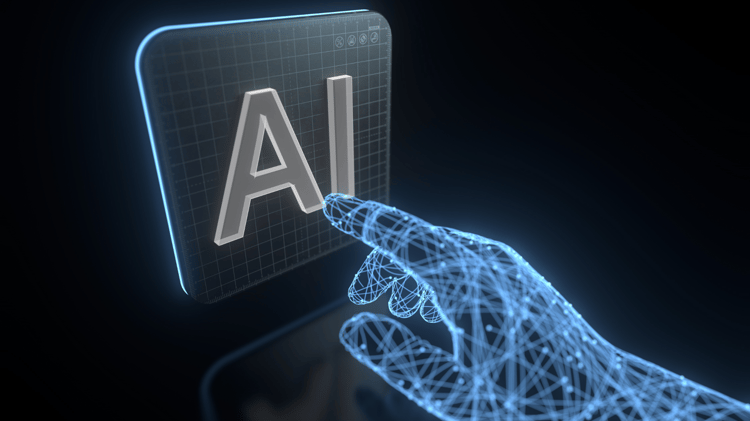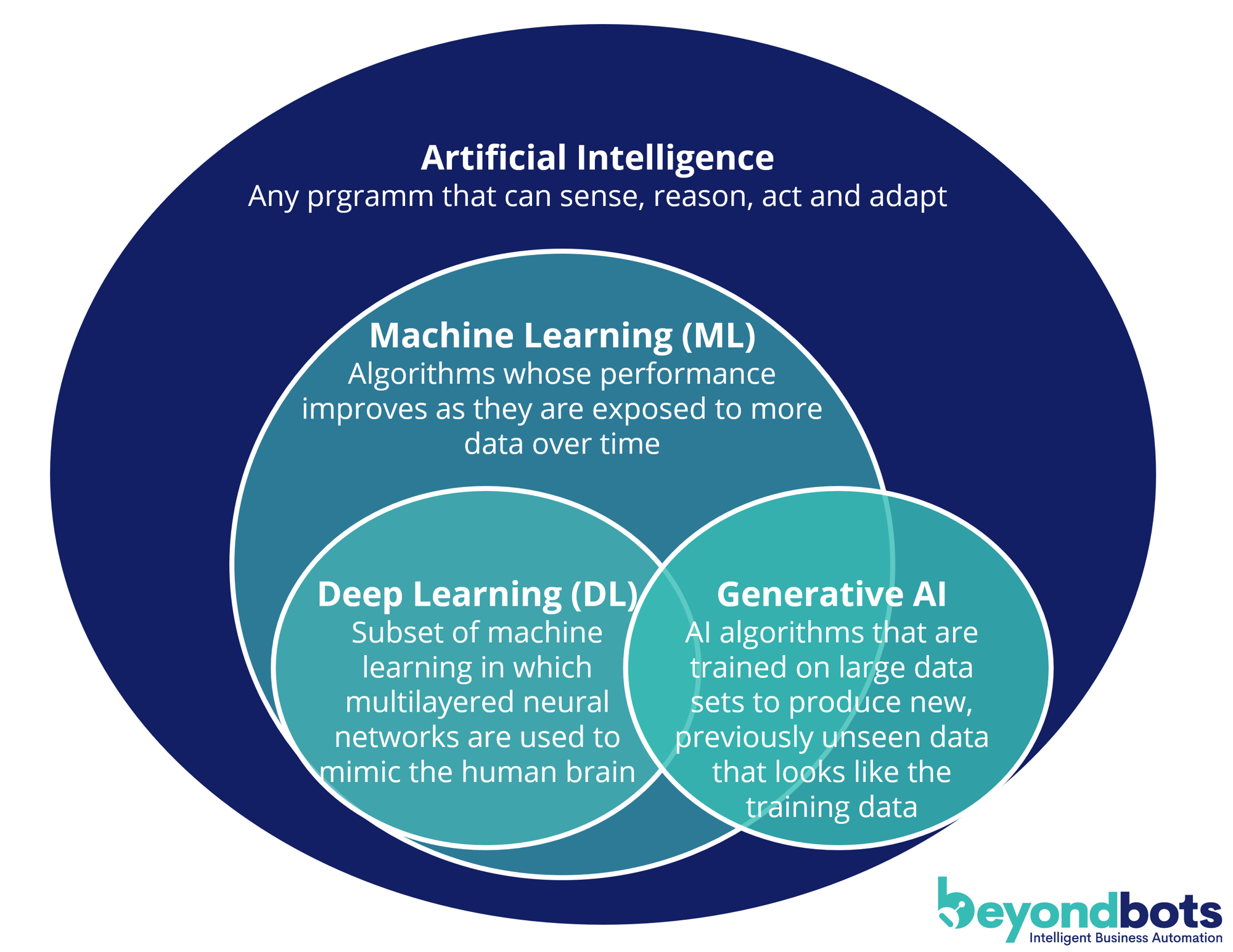Basics
What is artificial intelligence?
Artificial Intelligence (AI) refers to software systems created by humans to accomplish complex goals. These systems can perform physical or digital actions by perceiving their environment and collecting data. After data collection, they interpret the gathered structured or unstructured data, draw conclusions from the information or knowledge acquired, and make decisions on the best course of action to achieve the given goal.
AI systems can employ either symbolic rules or learn a numerical model. Additionally, they can adapt their behavior by analyzing how the environment is influenced by their previous actions. This allows AI systems to undergo continuous evolution and adaptation to changing conditions and challenges.
Why AI is important for automation:
Advanced Automation: AI allows the automation of not only routine, repetitive tasks but also complex, human-like processes.
-
Advanced Automation: AI allows the automation of not only routine, repetitive tasks but also complex, human-like processes.
-
Dynamic Adaptation: AI systems continuously learn and autonomously adapt to new challenges without human intervention
-
Increased Efficiency: AI enhances the speed and accuracy of operations, minimizing errors and leading to overall more efficient workflows.
-
Rapid Data Analysis: AI rapidly analyzes vast amounts of data, identifies patterns, and supports informed decision-making.
-
Customer -Focused Solutions: AI enables personalized customer experiences, ranging from chatbots to tailored marketing, enhancing overall customer satisfaction.
-
Scalability: With AI, automation strategies can be flexibly expanded based on company growth and needs.
Which AI technologies do beyondbots specialize in?
Generative AI (GenAI) / Large Language Models
Predictive AI
Conversational AI / Chatbots
Intelligent Document Processing (IDP)
Demo: How AI can strengthen your company
We have condensed the basics of AI and automation into 30 minutes: What is AI? How does it work? How do you get started? Which use cases are suitable for functional domains? We provide you with the essential insights in a 30-minute session.

WHAT TYPES OF ARTIFICIAL INTELLIGENCE EXIST?
- Artificial Intelligence (AI): Software programmes that can perceive, think, act and adapt. It can perform tasks such as decision-making, speech recognition, planning and many others.
Uses Cases: Automation of repetitive tasks, customer service bots, and predictive analyses.
-
Machine Learning: A subset of AI focused on enabling computers to learn from data. The performance of algorithms improves as they are fed with increasing amounts of data. The main advantage of ML lies in its ability to recognize patterns in large datasets and make predictions or decisions based on them.
Use Cases: Personalized marketing, predictive maintenance, financial modeling. -
Deep Learning: A specialized subset of machine learning that utilizes neural networks with many layers, hence "deep." These networks attempt to simulate the human brain to recognize complex patterns in large datasets. Particularly useful in areas such as image and speech recognition.
Use Cases: Speech recognition, image recognition, natural language processing. -
Generative AI: Large Language Models like GPT-4 or Claude are specialized AI models designed for handling natural language. They can generate, comprehend, and respond to text. Due to their enormous size and training data, they are capable of producing human-like text in a variety of languages and styles. Use Cases include content development, product design, creative problem-solving, and software development.











